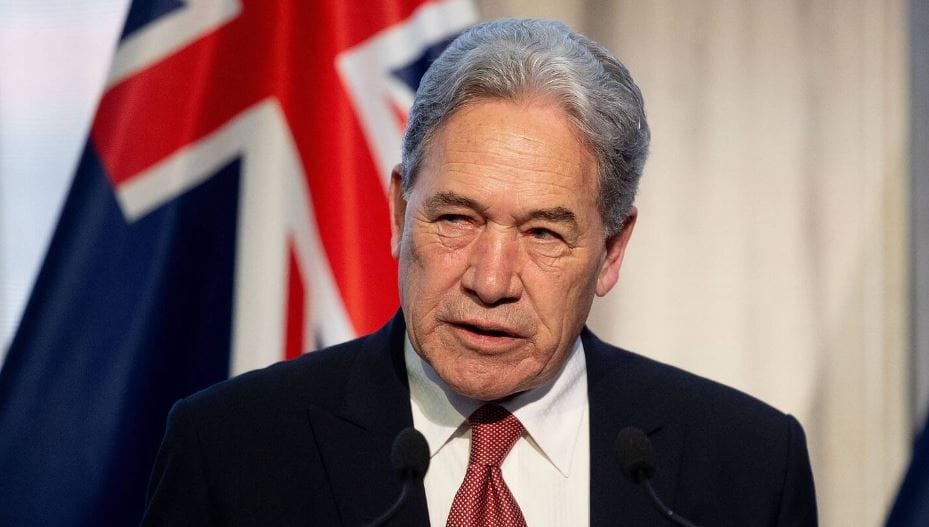The Escalating Crisis in New Caledonia
The New Caledonia crisis has intensified, prompting urgent calls for diplomatic intervention. New Zealand’s Foreign Minister, Winston Peters, emphasized the need for “more diplomacy, more engagement, more compromise” to address the ongoing unrest that has plagued the French territory since May. The protests erupted following France’s decision to permit thousands more long-term French residents to vote, a move perceived by the Indigenous Kanaks as a threat to their electoral influence and future independence aspirations.
The introduction of these reforms has not only sparked violent protests but also necessitated the deployment of French military forces to restore order. This militarization has exacerbated tensions, with Indigenous Kanaks fearing that their voices will be further marginalized in any future referenda on independence. Paris, on the other hand, defends the reforms as essential for enhancing democratic participation in New Caledonia.
Diplomatic Efforts and Challenges
Addressing the crisis at the PALM10 summit in Tokyo, Peters highlighted the critical juncture at which New Caledonia finds itself. The violence and democratic disruptions have reopened old wounds while creating new ones, complicating the path to resolution. “In New Caledonia, we hope to see more diplomacy, more engagement, more compromise,” Peters stated, underscoring the necessity for a nuanced and empathetic approach to the crisis.
The Pacific Islands Forum, of which New Caledonia is a member, has been identified as a potential mediator in the conflict. Peters urged the forum to leverage its collective wisdom and experience to facilitate a resolution. “Based on our conversations in Tokyo this week, we are confident that the different actors in Noumea and Paris will see any offer of dialogue, engagement or mediation as an opportunity to access the deep wisdom and experience that exists in the Pacific Islands region,” he added.
The urgency of diplomatic intervention was echoed by the Melanesian Spearhead Group, comprising Fiji, Papua New Guinea, Solomon Islands, and Vanuatu. The group expressed its readiness to foster a conducive environment for dialogue on New Caledonia’s political future. They also raised alarms about the increasing militarization and the deportation of protest leaders to France for trial, condemning both the destruction of property and the loss of lives, which have inflicted significant economic damage.
Pathways to Resolution
The complexities of the New Caledonia crisis require a multifaceted approach to diplomacy. The indigenous Kanaks’ apprehensions about the dilution of their electoral power and the overarching need for democratic integrity form the crux of the issue. Peters’ call for compromise reflects the necessity of balancing these concerns with the broader democratic objectives set forth by Paris.
The proposed engagement by the Pacific Islands Forum and the Melanesian Spearhead Group presents a glimmer of hope for a peaceful resolution. These regional bodies bring a wealth of cultural understanding and conflict resolution experience, which could prove instrumental in mediating between the conflicting parties. The emphasis on dialogue, engagement, and mediation highlights a commitment to a peaceful and inclusive resolution, one that acknowledges and addresses the historical and contemporary grievances of the Indigenous Kanaks.
The international community’s support for these regional efforts will be crucial. The crisis in New Caledonia is not just a local issue but a matter of regional stability and human rights. Ensuring that all voices are heard and that the path to resolution is paved with mutual respect and understanding will be pivotal in achieving lasting peace.
Summary
New Caledonia is in the throes of a significant crisis, with violent protests erupting over electoral reforms perceived as undermining Indigenous Kanaks’ political power. New Zealand’s Foreign Minister, Winston Peters, calls for increased diplomacy, engagement, and compromise to resolve the conflict. The Pacific Islands Forum and the Melanesian Spearhead Group are poised to mediate, aiming to foster dialogue and address the deep-seated issues at the heart of the unrest.
Key Learning Points:
| Point | Details |
|---|---|
| Crisis Escalation | Protests and violence following French electoral reforms in New Caledonia |
| Diplomatic Calls | New Zealand’s Foreign Minister urges diplomacy and compromise |
| Indigenous Concerns | Kanaks fear dilution of their electoral influence |
| Military Intervention | French military deployment exacerbates tensions |
| Regional Mediation | Pacific Islands Forum and Melanesian Spearhead Group offer to mediate |
Soumya Smruti Sahoo is a seasoned journalist with extensive experience in both international and Indian news writing. With a sharp analytical mind and a dedication to uncovering the truth, Soumya has built a reputation for delivering in-depth, well-researched articles that provide readers with a clear understanding of complex global and domestic issues. Her work reflects a deep commitment to journalistic integrity, making her a trusted source for accurate and insightful news coverage.



